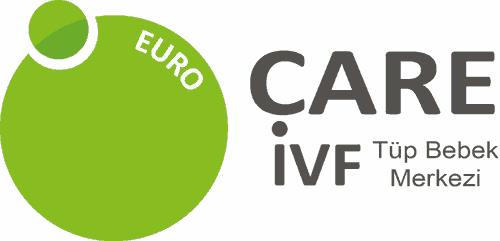 Undergoing fertility treatment can be overwhelming, especially if it involves using eggs from a donor. Due to the highest success rates and wide applicability, IVF with donor eggs is the most successful treatment that makes thousands of baby dreams come true per year.
Undergoing fertility treatment can be overwhelming, especially if it involves using eggs from a donor. Due to the highest success rates and wide applicability, IVF with donor eggs is the most successful treatment that makes thousands of baby dreams come true per year.
Here we explain in detail the process and average success rates of this assisted reproductive method.
IVF with donor eggs explained
Donor egg IVF is a type of assisted reproductive treatment that uses eggs retrieved from a young, anonymous egg donor with good ovarian reserve.
Before starting treatment, the donor and the patient (also called the recipient) will take pills to synchronize their menstrual cycles. Then the donor will start to self-administer stimulation medications to grow multiple eggs. When the eggs are mature enough, the donor will have their eggs retrieved at the EuroCARE IVF clinic in North Cyprus.
The collected eggs are assessed for quality and fertilized with sperm using the ICSI (intracytoplasmic sperm injection) method. At that time, the patient (recipient) begins progesterone therapy to prepare her uterus for receiving the embryo(s) on day 3 or day 5 after egg fertilization.
Are donor eggs right for you?
IVF with donor eggs is ideal for women with:
- Low ovarian reserve
- Poor egg quality
- Genetic conditions (such as spinal muscular atrophy, cystic fibrosis and sickle cell anemia)
- Reproductive disorders (e.g. premature ovarian insufficiency, early menopause).
If you have attempted IVF using your own eggs and had no success, trying to find an egg donor could be a promising next step for you. Egg donation in Cyprus is also a viable option for male same-sex couples.
How to find the best donor for you?
According to the laws of North Cyprus, a woman who wants to become a donor must be between 20 and 28 years of age in the time of donation and have good mental and physical health. Before joining the EuroCARE IVF egg donation program, the donor candidate goes through a thorough testing process, which involves:
- Tests for infections (syphilis, AIDS, hepatitis B and C, gonorrhoea, trichomoniasis, chlamydia)
- Microbiological and pap smears
- Ultrasound scans
- Genetic tests (karyotype)
- Hormone tests
The biggest advantage of choosing a donor through a fertility clinic is the guarantee that they are healthy and disease-free. With this in mind, you can focus on other criteria, such as:
- Physical appearance
- Education
- Career
- Personality
- Ethnic/national background
- Hobbies/interests
How successful is donor egg IVF?
IVF with donor eggs utilizes eggs from a healthy woman in her 20s, which brings success rates above 75% in just one cycle. This makes it possible for a woman in her 40s to have IVF success rates like a healthy woman in her 20s.
In 2019, the EuroCARE IVF Center reported the following success rates for egg donation IVF:
20-29 — 80%
30-34 — 80%
35-39 — 79%
40-44 — 78%
45+ — 75%
Factors that affect treatment success
Egg donor IVF is an extraordinarily successful treatment that can elevate a patient’s likelihood of achieving a successful pregnancy even if previous IVF cycles with the patient’s own eggs have failed. However, there are other factors may influence the individual success with donor egg IVF, including:
Maternal age
There are a fixed number of eggs in your ovaries, called the ovarian reserve, which declines as you get older. From 500,000 eggs in your ovaries at puberty to around 1,000 eggs by the time of menopause, the egg supply gets depleted day by day throughout a woman’s lifetime. The decreased egg supply and poorer egg quality due to age may affect a patient’s chance of conceiving through IVF.
Embryo & sperm quality
The quality of embryos depends on egg and sperm quality. While there is no doubt that the donor eggs will produce a successful pregnancy, there may be still a risk of lower quality embryos if the male partner has sperm issues. To increase your chances of success, we may apply techniques like PGS or PGD to screen the embryos for chromosomal or genetic abnormalities.
Uterine Receptivity
Successful implantation is determined by several factors including the thickness of the uterine lining, immunological factors, and uterine health (i.e. the absence of polyps, adhesions and other disorders).
Lifestyle
Keeping yourself healthy is important for the success of your treatment cycle. Be sure to eat well, exercise, and avoid unhealthy habits (such as smoking tobacco or heavily consuming alcohol). Also, keep your stress levels to a minimum as these may influence your hormones.
Are there any risks associated with the procedure?
There are minimal risks related to egg donor IVF, which can be divided into two categories:
Risks for the donor
There are no considerate risks for the egg donor except for the risk of ovarian hyperstimulation syndrome, also known as OHSS. This condition happens quite rarely as a result of the stimulation medications. To avoid such complications, the EuroCARE IVF doctor recommends intensive monitoring through ultrasounds and blood tests. Depending on the test results, the doctor will adjust the medication doses accordingly.
Risks for the recipient
Before undergoing egg donor IVF, you will go through extensive medical testing to ensure that you are healthy enough to sustain a pregnancy. This screening procedure helps eliminate the risk of pregnancy complications that may arise after the transfer.
One of the most common risks of egg donation IVF, however, is the possibility of becoming pregnant with multiples. IVF patients usually choose to have more than one embryo transferred during their treatment in order to increase the likelihood of pregnancy. To reduce the risks of multiple pregnancies, our EuroCARE IVF specialist will carefully monitor your health and progress to make sure that you’re transferred the right number of embryos.
Ready for IVF with donor eggs?
Before deciding if donor egg IVF is right for you, speak with our EuroCARE IVF specialist. He will order diagnostic fertility tests and review your medical history to determine which treatment will give you the best chance of having a baby.
Generally, our fertility specialist will recommend IVF with donor eggs if you have low egg quality or quantity due to age or a medical condition.
If you have questions about whether you should pursue IVF with your own eggs or donor eggs, contact us to schedule a free online appointment. We’ll be happy to guide you through your important family-building decision.
